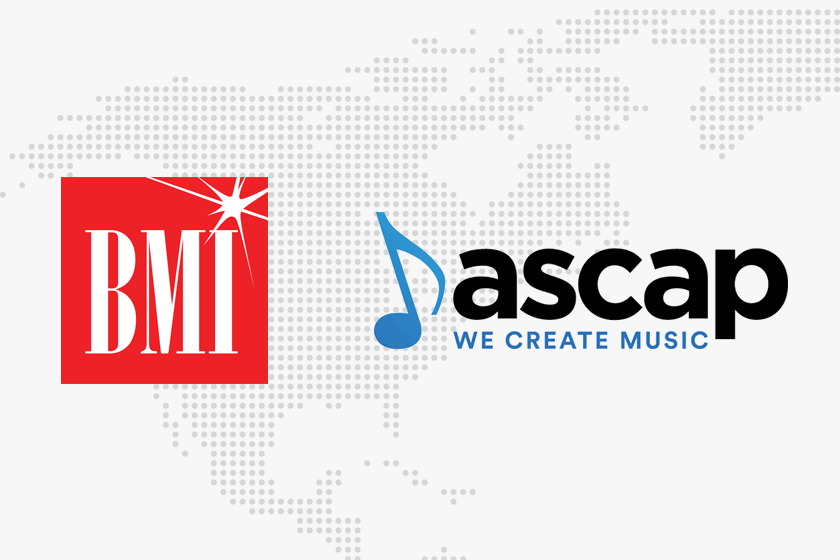by Marty Dodson
Apr 4, 2022
Songwriters are wonderfully creative people with the ability to dream big with their hearts and minds. But often, we don’t understand the answer to the important question, “how do songwriters get paid.” So, here’s an overview of how songwriters get paid.
Publishing Draws for songwriters.
This is a monthly amount a publisher pays to a writer that signs an exclusive staff writer publishing deal. A publisher might give the writer $1000-2000 per month. This is meant to help the writer avoid having to work full time at and spend more of their time writing songs. The more success you have as a writer, the more money you may receive as a draw. A publishing draw can be very helpful, BUT there’s a big drawback to a draw.
Draws are recoupable.
That means that once money starts rolling in, the publisher will keep all of it (with the exception of the writer’s share from their PRO) until the draw is paid back. And, most of the time, demo costs are recoupable too. So, a writer that writes for a publisher for a couple of years could rack up $75-100,000 that has to be paid back out of royalties. The (slightly) good news is that the writer doesn’t have to pay back that money out of pocket if cuts don’t come along to pay back the draw. That’s the risk a publisher takes when they sign a writer.
It can come as a shock to writers, when royalties start coming in, to find out that a huge percentage of the incoming royalties go to repay publishing advances. It’s wise for a writer to keep their draw and expenses as low as possible. This wy they can recoup the advances faster and start making money when they get cuts. A big draw can be appealing, but it puts a writer in a hole that may be hard to get out of.
Sync Royalties.
Sync licenses are fees paid by TV shows, movies and advertisements to use a song. There are a million different ways these contracts work and they can be very small ($50) or huge (hundreds of thousands). In the typical scenario, a tv show will send out a brief that describes what they need. They will give a budget for the sync fee. That fee will be something like $5000 all in.
That means that they will pay out $2500 for the song itself and $2500 for the master recording of the song. So, if there were two writers on the song and they both own the master recording. 50/50, they would each get paid $2500 for that placement. If there are publishers on the song for each writer, then each publisher will get $625 for the song. And each writer will get $625 for their writing shares. The master money would be split the same way if the writers and publishers share the master ownership equally. If the writer is not recouped, then the publisher might get all of that money.
In most instances, there will be royalties paid out on the song when it airs. If you have a song that lands a prominent spot (like a theme song) on a show that keeps on going in rerun land, a songwriter can make a lot of money on this back-end money. And there may be royalties for the singers on the song as well. This is more typical in the advertisement world.
Mechanical Royalties.
Generally, these are royalties on something that someone purchased. A downloaded song, a CD, a Vinyl Record, or sheet music pay mechanical royalties. These days, these sources of money have dwindled a good bit, but a big wedding song can produce lots of money from sheet music and many artists still sell a lot of vinyl records.
When someone purchases your song in just about any form, the writers and/or publishers split the mechanical royalties. Currently that mechanical rate is 9.1 cents per unit. If you do the math, you’ll realize that it takes a lot of mechanical money to make a big splash, especially if there are 3 writers and 3 publishers splitting that 9.1 cents.
Songwriting Income Streams From Performances
These are primarily royalties from radio and TV airplay, but they also include things like music played in elevators, restaurants, airplanes, satellite radio and streaming platforms. The sync fee we discussed earlier is a licensing fee to use the song and the performance royalty is fee for the song per play. This is one of the top songwriting income streams. On a big hit single, the performance money can easily be in the 6-7 figure range. So when asking the question “how do songwriters get paid?” this is often the most lucrative piece of the business pie.
Part II of “How Do Songwriters Get Paid”- So Who Pays The Songwriter?
The Harry Fox Agency
Harry Fox is the largest issuer of physical product licenses in the United States. They administer and license songs. They then collect and pay out mechanical royalties to songwriters and publishers. So, if someone wants to license one of your songs, they can license it through Harry Fox and then Harry fox would collect your royalties on that license and pay you what you are due.
PRO’s – (ASCAP, BMI, SESAC, SOCAN Etc)

These performing rights organizations collect performance royalties and pay you quarterly, or in SESAC’s case, monthly. Perhaps the most important organizations when it comes to songwriting income streams. In the US, there are three primary choices – BMI, ASCAP and SESAC. For most countries, there is just one primary PRO like SOCAN in Canada.
SoundExchange
SoundExchange collects for sound recordings and artists. Therefore, while the PRO collects the songwriter’s money, Sound Exchange is collecting for the artist and master owners (often a record label). If you release music independently as an artist, you need to register with Sound Exchange to collect for your masters and your artist portion.
Distribution Companies
Distribution companies like. CD Baby, Distrokid and Symphonic distribute your songs (as an artist) to all of the streaming platforms and then help collect your money from sources all over the world. They all work differently, so it’s important to know how much you will be paying them to distribute your music and where their money comes from (yearly fee, percentage of collections, etc)
As a writer, I get regular monthly checks from my publishing advance and quarterly checks from three different PROs because I have catalogs with all three. I get semi-annual checks from two publishers because I have two catalogs that have recouped. In addition, I get checks from Distrokid where I have released some songs on my own as an artist.
It’s a crazy system and very unpredictable, but that is how it works. The most stable income source for a writer is the publishing draw. That’s the only one you can predict from check to check. The others are unpredictable, but it’s always nice to open the mailbox and find a check in there that might surprise you.
If you’d like a deeper dive into “how do songwriters get paid?”, I recommend a great book called This Business Of Songwriting.
Write on!
share
Write Better Songs Faster
Songwriting Success is Clay & Marty's 10-day video series that will help you level-up your songs and finish them faster. Enter your email address to get started!



